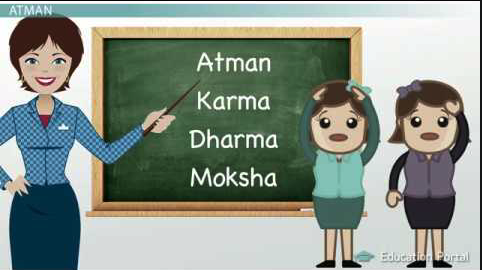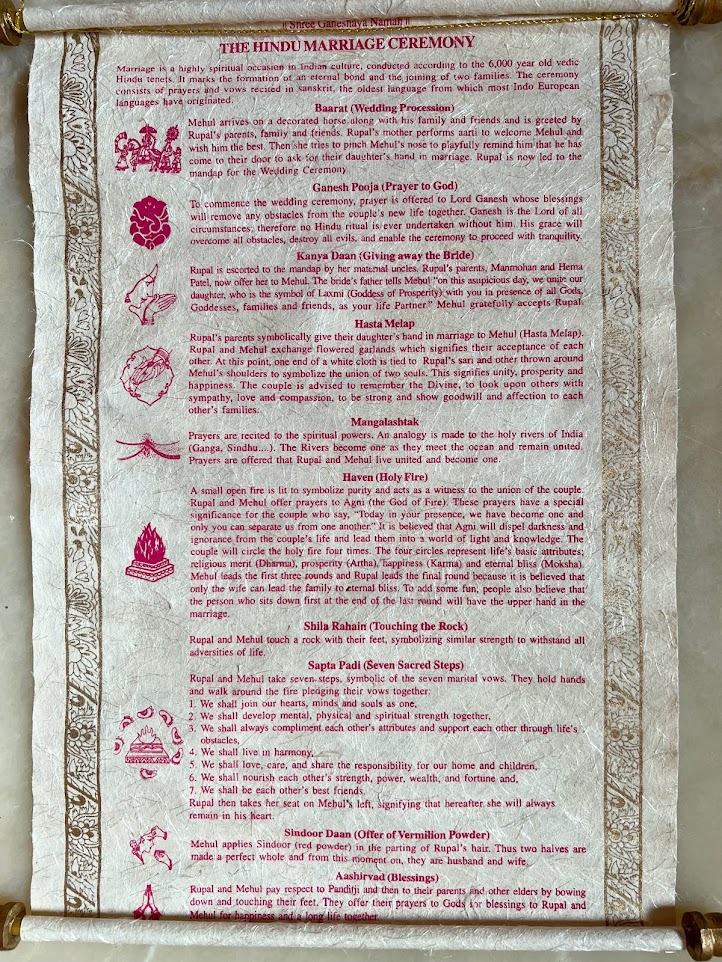This questions and answers document is prepared by a group of Hindu Speakers as a source of information for them or for any one seeking information on Hinduism. There are multiple ways of answering a single question and this group is not claiming to provide all potential answers here.

On Hinduism
The target audience is 9th grader Abrahamic students in American Schools but it will be useful to anyone interested in learning about Hinduism. All answers are designed to answer in about a 3 minute time frame. We have also provided links to other reading materials and video links relating to each question.
Considering Hindu speakers are invariably asked some sensitive geopolitical questions, we have included some potentially sensitive topics here to help speakers answer them from Hindu perspective. However we wish to clarify that this group is composed of Hindus but the group does not have any political affiliation.
Questions starting with “z” are being worked on now. We hope to list some 300 questions and answers below.
If you wish to review these questions and answers in the PDF format, here it is.
If you have any feedback on these QAs, please write to HinduSpeakers@gmail.com. Thank you.

26. Marriages
Hinduism is not divided by denomination, but by other categories, including deity traditions, sampradaya (lineage/school), parampara (disciplic succession) and darsana (school of thought). Most Hindus belong to one of four major deity traditions—Shaiva, Shakta, Vaishnava, and Smarta. While all traditions share many beliefs and practices, the central deity worshipped as well as certain philosophical tenets differ.
Shaivas primarily worship different forms of Lord Shiva; Shaktas worship Shakti, or the Divine Mother in Her various forms; Vaishnavas worship forms of Lord Vishnu; and Smartas worship different forms of six major deities, including Lord Shiva, Shakti, Lord Vishnu, Lord Ganesha, Lord Subramanya/Karthikeya and Lord Surya, holding them all to be forms of Brahman, the eternal, infinite, unchanging principle that is the substratum of the universe and is both immanent and transcendent.
Each deity tradition may also further branch into sampradayas. Adherents of a sampradaya have familial connections and/or strong faith in the heightened spirituality, divine experiences, and philosophical knowledge of the founder and/or current guru or swami (spiritual head) of the sampradaya. Hindus may also freely choose between different sampradayas based on their liking and understanding. A sampradaya following a particular lineage or succession of swamis is said to be of a particular parampara.
Hindus of different deity traditions, sampradaya and parampara can intermarry although many choose to marry within these branches for a variety of reasons.
Source: Short answers to real questions about Hinduism
Other reading material:
Relevant videos:
There is no specific mention of inter-religious marriages in Hindu scriptures. However it has been a common practice amongst Hindus to marry within one’s varna and jati to maintain good harmony with two sets of families.
Interfaith marriage is not only a marriage of two individuals but, in many respects, it is an union of two sets of extended families and communities. If two communities are at odds and have major historical conflicts, that may spill into every step of your planned married life. For this reason, parents and faith leaders from all religions wish their young ones marry a like kind person.
Many times it is not the religion but what that person has learned from it is important. A religious fanatic will certainly create unexpected problems in the planned married life, especially while raising children in two faiths. An exclusivist supremacist will want children to follow only their faith and not the other.
A Christian in love with a Hindu has to find out if he/she or your children will have to be a part of Hindu religious ritual practices and if that will be in conflict with fundamental Christian religious beliefs.
A Hindu in love relationship with a Christian should find out if raising children in two faiths is acceptable to the Christian intended spouse, more specifically if Baptism/Christening of children is expected. Baptism is not a hollow ritual devoid of meanings. It will set a religious tone for your planned married life and may have major legal consequences in a child custody battle during the divorce proceedings.
There are many other points to be discussed, including what will be names of children, if it involves mandated financial contribution to a church or mandir and what will be the final rite—Hindu cremation or Christian burial—for a family member.
Ideally it is good to share two faiths, truly respect each other’s beliefs and with equality.
.
Other reading material: Book–Interfaith Marriage: Share and Respect with Equality
Relevant videos: Interfaith Marriage With Equality,
Contributor: Dr. Dilip Amin
The Hindu wedding, called Vivaha, is the most important samskara (sacrament, rite of passage) of Hindu life. Hindu weddings are colorful and elaborate extending to several days. Prior to the wedding day, there are mehdi (hand painting), a music festival, Garba dance programs, and more.
On the wedding day, the groom and family arrive at the bride’s home. The groom is considered to be an incarnation of Lord Vishnu. The bride, considered to be an incarnation of Goddess Lakshmi, arrives at the venue with her maternal uncle. At the beginning of any Hindu religious ceremony, Lord Ganesha’s blessings are sought as He is the remover of all obstacles. The groom adorns the bride’s neck with a necklace called mangala-sūtra i.e. auspicious thread. The ends of the sari worn by the bride and the shawl worn by the groom are formally tied. It has the symbolic meaning of tying two lives together. There is a homa (offerings to Agni) where the couple is seeking Agni’s blessing. Then there is Saptapadih, the seven-step circumambulations around Agni (fire), which is recognized as the essence of a Hindu wedding. These are Saptapadih oaths:
1. Be a provider of food in abundance
2. Bring vigor and energy to the household
3. Be a harbinger of prosperity to the family
4. Always bring comfort to the household
5. Have many children together with the husband
6. Enjoy with him all that the seasons have to offer
7. Become his true and unwavering friend for life.

Source: The book Vivāha Saṃ̣skāra: The Hindu Wedding Ceremony.
Other reading material:
Relevant videos: Fusion Hindu wedding,
URL of this post: hinduspeakers.org/ufaqs/what-is-a-hindu-wedding-like/
